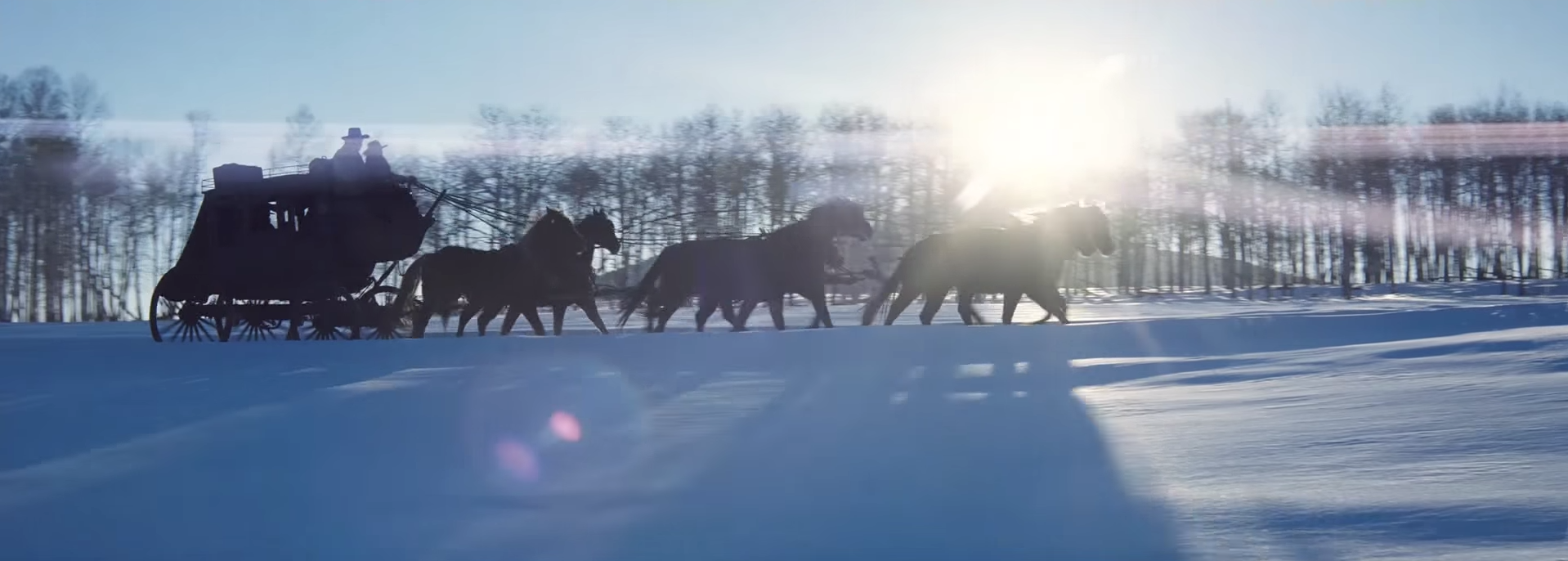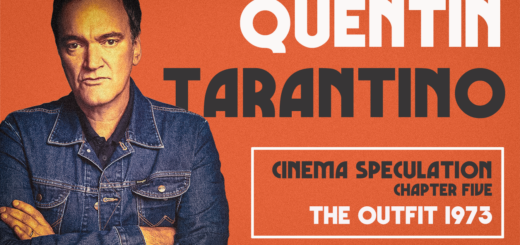Quentin Tarantino goes on record about Netflix-version of The Hateful Eight

There has been ample speculation. So much so that Quentin almost got bothered by it. He says “Like, 42 different websites would rather speculate on if it’s different rather than just watch it. So it’s all this misconception. “Oh, they’re just replaying the credits…it’s just only what was in the roadshow version.” No! I don’t know [an exact] timeline as far as how much new footage is in it, but it’s something like about, like, 25 minutes if not more……“. At issue is Netflix‘ surprise release of a mini-series version of The Hateful Eight, which debuted a few days ago without much announcement or clarification. Fans and news outlets alike speculated how this differed from the 70mm Roadshow Version of the film (which is slightly longer as the one you can buy on BluRay and has an intermission and overture) and whether QT had a hand in the decision to cut the film up in a few 50min episodes. So it turns out he had, and it’s not exactly merely a chopped up version of the roadshow (which we saw a few times and loved).
QT spoke to Slashfilm about it and clarified, that Netflix had approached him and he liked the idea of revisiting the material so he set out to rearrange it to fit the episode structure even more than the movie already did. He says “… if I were to use all the footage we shot, and see if I could put it together in episode form, I was game to give that a shot.” and “…me and my editor, Fred Raskin, we got together and then we worked real hard. We edited the film down into 50 minute bits, and we very easily got four episodes out of it. We didn’t re-edit the whole thing from scratch, but we did a whole lot of re-editing, and it plays differently. Some sequences are more similar than others compared to the film, but it has a different feeling. It has a different feeling that I actually really like a lot. And there was [already] a literary aspect to the film anyway, so it definitely has this “chapters unfolding” quality.” But that does that mean as a result? He says “…this version gives you more…and it gives you more in a slightly different format. The movie doesn’t necessarily need to be like one longer movie. It was a pretty long movie [to begin with]. But this gave me an opportunity to, rather than just make a super duper epic, I could actually use all of my ideas…my scripts are always told with really complex narrative ideas…” and lastly, for his interpretation of how it stands on its own compared to the movie: “Now, in the course of editing a movie, a lot of those ideas go by the wayside, because ultimately it’s not serving your purpose for making a linear movie. But in this case, I was able to put it all back in. And if you’re just watching it like a chapter at a [time], which is basically 50 minutes at a time, then you’re able to absorb it. And in a fun way, you’re able to look at it slightly differently. Do you want to keep watching it? You can, but you don’t have to. Each episode ends it an emotional place and you’re also able to see the whole original narrative complexity of the whole piece.”

Click here to read the entire interview: Slashfilm
Now this doesn’t entirely answer precisely what is different from the theatrical or the roadshow version. But, the fantastic website movie censorship has embarked on comparing the Netflix episodes with the theatrical version in minute detail (as they always do). It is lamentable that due to lack of availability, they can’t really compare it to the roadshow version, but since most people only know the theatrical version, that should give you an idea of how different it actually is: Episode one | Episode two | Episode three | Episode four. In total, they count 28 differences compared to the theatrical version including 14 occurrences of alternate takes or material at an overall length difference of 19,12 minutes (without logos, credits, flashbacks). Their text is in German but it should be self-explanatory from the screenshots and listings.













